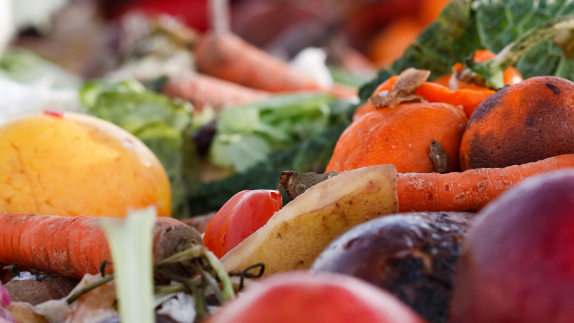Through Africa’s first Industrial Symbiosis Programme, manufacturing companies exchange under-used resources that would otherwise become waste while generating revenue, creating jobs and cutting emissions.
The WISP programme
The Western Cape Industrial Symbiosis Programme (WISP) in Cape Town is Africa’s first industrial symbiosis programme. Initiated by the Western Cape Government, now funded by the City of Cape Town metropolitan municipality, and delivered by the non-profit GreenCape, WISP helps businesses identify new opportunities to exchange resources. Since it started in 2013 these synergies have diverted over 143,000 tonnes of waste from landfill, and created over 400 jobs. The programme has won multiple awards and inspired several other industrial symbiosis projects across Africa.
How it started
In 2011, unemployment rates in the Western Cape province of South Africa reached 24%. The Western Cape Government’s Green Economy Strategy Framework (2013) aimed to stimulate economic growth, create jobs and reduce environmental degradation, and sought innovative projects to support. The Western Cape Premier’s special advisor visited the UK’s National Industrial Symbiosis Programme, which has been operating since 2005 and has successfully reduced industrial and commercial waste while delivering various economic and environmental benefits. Looking to replicate this, the Western Cape Government recruited GreenCape, a non-profit organisation that supports the development of a green economy in South Africa, to adapt the UK’s programme to the South African context.
In April 2013 the Western Cape Industrial Symbiosis Programme (WISP) pilot was launched with seed funding of ZAR 1.25 million (USD 130,000 based on the exchange rate at the time) from the Western Cape Government. The pilot involved running business workshops and one-to-one engagements to create a network of over 100 companies across a variety of sectors and identify opportunities where waste could be used as raw materials. Within one year, the pilot demonstrated the potential of industrial symbiosis for the region - over 1,200 potential synergies were identified within the network.
How it works
WISP connects companies, helping them identify opportunities to exchange unused or residual resources from one company’s manufacturing processes to become raw materials for another. WISP facilitators, specialising in different sectors, conduct site visits to understand the production processes of various companies, and identify opportunities to reusereuseThe repeated use of a product or component for its intended purpose without significant modification. and recyclerecycleTransform a product or component into its basic materials or substances and reprocessing them into new materials. secondary raw materials generated in manufacturing processes, as well as other opportunities for resource efficiency. While the service is free of charge, companies are asked to provide information about the impact of the synergies, which WISP stores securely in an online database and uses to track impacts and publish case studies.
Whilst some companies were initially sceptical about the costs of changing their business model, managing varying material flows, and getting the materials which meet their quality standards, the programme has shown that the benefits of becoming more resource efficient outweigh the costs of adapting their operations.
Impact
For every rand invested by the government, WISP returns eight rands in economic benefits to its network. This is because businesses that implement synergies are able to reduce the amount of materials and waste they transport and landfill, can access cheaper alternative raw materials, and may also generate additional revenue in cases where they are able to sell their waste to businesses as raw material. Through the 231 synergies facilitated to date, WISP has so far:
diverted more than 143,000 tonnes of waste from landfill
saved over 435,000 tonnes CO2e emissions (equivalent to the electricity consumption of 117,840 homes in South Africa)
created 411 economy-wide jobs, mainly in SMEs
generated ZAR 155 million (USD 8 million) in additional revenue, cost savings, and private investments.
WISP’s success has encouraged the development of other Industrial Symbiosis Programmes in other South African provinces, namely Gauteng, KwaZulu-Natal, Limpopo, and Mpumalanga, as well as demonstration activities in the Eastern Cape. Its experience has also been shared across the African continent, encouraging similar programmes to be established in Ghana and Mauritius.
WISP was a finalist of the World Economic Forum Circulars awards in 2015, and then a runner-up in 2018. The Programme received a gold award in the recycling and waste management category of the 2019 Eco-Logic awards. It was also awarded several climate change awards, listed as part of the C40 top 100 urban solutions, and received a Medal of Honour in the 5th Guangzhou Awards in 2021.
Industrial symbiosis examples
There are more than 1,064 companies in the WISP network and so far over 9,000 potential synergies have been identified. Those that have been put into practice include:
Waste wood and wooden pallets
Through an introduction to a waste management company by WISP, a company that manufactures wooden pallets has changed their business model to become more circular, switching from virgin wood to reusing broken pallets and other timber packaging material create its wooden pallets. The synergy diverts 79 tonnes of wood waste from landfill annually (saving about 200 tonnes CO2e), saves the pallet manufacturer ZAR 29,000 (USD 1,500) annually, generates ZAR 174, 000 (USD 9,500) in additional revenue, and has created three new permanent jobs.
Waste egg whites and confectionary
Waste egg whites from ice cream manufacturing were sold to a small confectionery company, saving almost ZAR 45,000 (USD 3,000) on waste disposal costs for the ice cream manufacturer and creating ZAR 22,000 (USD 1,460) in product sales for the confectionery company.
Textile waste and carpet underfelt
Turning textile waste into carpet underfelt saved a textile manufacturer around ZAR 60,000 (USD 4,500) on costs such as transportation and landfill.
Organic waste and insect feed
A waste management company is now diverting its annual 3,360 tonnes of organic waste to an insect farming company rather than landfilling it, helping to future-proof against an upcoming ban on sending organic waste to landfill in the Western Cape.
Foundry sand waste and bricks
Since 2013/2014, WISP has been engaging with foundries and brick manufacturing companies to explore the potential of using foundry sand waste as a raw material in the brick manufacturing industry. Technical and legal barriers initially prevented the solution from taking off but have since been overcome, unlocking the opportunity to divert 2000 tonnes of waste foundry sand from landfill per year to a brick manufacturing company, saving 412 tonnes CO2e emissions. The foundry is saving approximately ZAR 600,000 (USD 32,900) per year, while the brick manufacturing company generates up to ZAR 470,000 (USD 25,700) in additional sales per year after investing in equipment and creating new employment opportunities.
Challenges and lessons learned
Making the business case for circular economy
By carrying out data collection and analysis, WISP quantifies the benefits of exchanging rather than discarding waste materials, providing much-needed evidence on the circular economycircular economyA systems solution framework that tackles global challenges like climate change, biodiversity loss, waste, and pollution. It is based on three principles, driven by design: eliminate waste and pollution, circulate products and materials (at their highest value), and regenerate nature. opportunity for businesses. Further, providing technical expertise and capacity building can also help companies to realise these opportunities, improve their operational efficiency, and grow their business.
New business models based on mutual benefits
Industrial symbiosis provides a win-win solution for the companies involved. The exchange of underutilised resources helps companies to reduce costs, generate additional revenue, and increase profitability. Because the materials are produced locally, it also increases supply chain resilience. These mutual benefits encourage industry to move together towards more circular business models.
A collaborative approach that enables business resilience
As a city-funded programme, WISP demonstrates how municipalities can support the circular transformation of the manufacturing sector and generate multiple benefits for businesses and the environment. By engaging with stakeholders from the private sector through steering committees, site visits, and workshops, public authorities gain an in-depth understanding of the challenges that businesses face. Having strong relationships with the network of (primarily manufacturing) companies also allows the municipality to support business resilience in times of crisis. Cape Town suffered a three-year drought and has ongoing issues with unreliable electricity supply from the national grid. Through WISP facilitators, the municipality has provided businesses with tailored support such as advice on water management and energy management, and alternative water and energy supply options. As a result, companies were able to better manage the impact on their businesses, and by extension on the local economy.
Evolution of the programme to focus on problematic waste streams
Over the 10-year period since WISP’s inception, alternative uses for most of the types of waste streams and by-products of manufacturing processes in Cape Town have been found and synergies can be readily replicated. Companies are empowered to create their own synergies without WISP facilitation, as they become more aware of alternative potential uses of their waste, and as waste management companies see a growing need to provide more sustainable alternatives for their clients. This has allowed WISP to shift its focus towards the more problematic waste streams that do not currently have reuse solutions and has already seen success in some of these, such as the hazardous waste foundry sand, which can now be reused to make clay and to concrete bricks.






